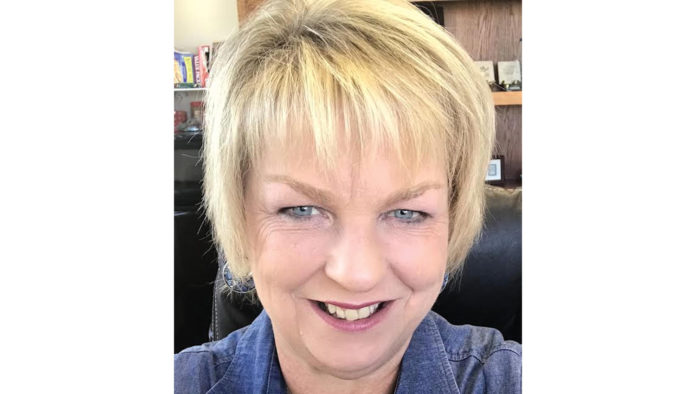
by James Coburn – staff writer
2020 wasn’t just any year. The year resulted in the 2020 pandemic that caused upheaval not only in the world but also here in Oklahoma. Nurses faced an accelerated life and death challenge of saving lives while protecting their own.
In 2020 nurses showed up strong.
Florence Nightingale said in 1870 that it would take at least 150 years (2020) for nursing to evolve into what she had envisioned.
As a nurse educator, in March Staci Swim recognized a personal calling in March to help alleviate the strain of the COVID-19 pandemic on her field of nursing beyond merely teaching a new generation of nurses in the classroom at Oklahoma City’s Kramer School of Nursing, she said. (story continued below)
Everest Rehab Hospital seeking RN

Her founding of Front Line Nurses 2020 is independent of OCU where she is a professor of nursing and received also earned her Ph.D.
“I am a nurse, and I knew what the nurses that had graduated that I had taught were going through,” Swim said. “And I just felt like I needed to help more. In my mind it was kind of like survivor’s guilt. And I struggled with it, but God woke me up in the middle of the night and said, ‘I know what you can do. You need to make a t-shirt.’”
So, she thought what if she made a t-shirt to symbolize The Year of the Nurse. Her motive was altruistic in using the profit from selling the t-shirt to benefit her profession. Nurses had told her they were tired and needed relief.
She spoke to nursing faculty at hospitals and academia and was encouraged to help.
By December 30 there had been 287,030 documented cases of COVID-19 in Oklahoma with 2,453 deaths, according to the Oklahoma Department of Health.
While some other nursing schools across the United States were shutting down, Kramer School of Nursing had stayed open to make career advancement work in a life-saving field. Students would graduate to help nurses succeed in the rat race generated by coronavirus.
“I thought if I could make a t-shirt that symbolizes The Year of the Nurse 2020, and also the pandemic that the nurses are working through right now, I could put profits towards helping nurses that had been effected by COVID,” she continued.
Swim created a design that states, “I survived the Year of the Nurse 2020.”
A torn and tattered mask is illustrated on the t-shirt because today, nurses continue to wear personal protective equipment over and over again, she explained.
“The mask in my mind symbolized the resilience of nurses at a time we have never, never experienced,” Swim said.
Today, nurses are seeing a lot of what Florence Nightingale experienced in 1970 — lack of supplies and sanitation — disease that cannot be controlled, Swim said.
Swim started a Facebook page, a group page and web page called Front Line Nurse to engage nurses experiencing the pandemic close at hand. More than 5,000 followers were attentive online within three weeks. Nurses were sharing stories.
“It was definitely a needed thing for nurses,” she said. “It was a platform that they needed to talk to other nurses going through the same thing — to vent, to get encouragement and inspire — to get questions answered, to share what works, what didn’t work.”
Swim’s access to many nurses in other countries at first prompted her to make it a global endeavor. The global dream never took off, she said, but it is coming to fruition nationally.
Swim tried to contact all of the boards of nursing in the US, but ironically none of them would accept any of the money she had raised because Swim had not attained a not-for-profit status with Front Line Nurses 2020.
“I went more towards The American Nurse Foundation, The American Nurse Association because on a national basis that would be the ideal place,” Swim said. “They have a COVID relief fund for nurses, so they were interested in talking to me about donating to the COVID Relief Fund for Nurses which would be great for me. I just needed to have a profit first to be able to donate.”
They chose the American Nurses Association if they ever get the profit built up. Until then they are helping individual nurses.
She and her husband, attorney Doug Swim, had paid for all needed expenses up-front but have not totally recovered, she said. As she continues to navigate how she can help, Swim expects some nurses will experience profound PTSD. Mental health will need to be addressed.
Swim has found ways to help individual nurses on a smaller basis. She has been able to send money for nurses who have been laid-off to use for groceries or gasoline, Swim said.
She was successful in having Front Line Nurses 2020 in place during National Nurses Week. A couple of facilities bought t-shirts for nurses.
The pandemic did not end on December 31. Some facilities told her they had not survived the pandemic yet and were reluctant to commit.
“My answers were always, ‘Every day you come home, you’ve survived.’”












